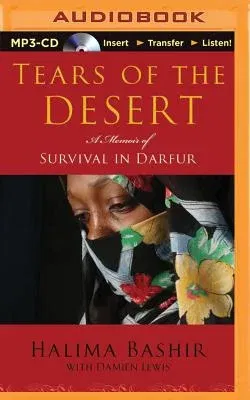Halima Bashir was born into the Zaghawa tribe, whose customs have
remained unchanged for centuries, in the remote western deserts of Sudan
in the region of South Darfur. Halima's father named his daughter after
the traditional medicine woman of the village, and she grew up in a
happy and close-knit childhood environment. Her father became a wealthy
man by his tribe's standards, so he could afford to send Halima to
school and university. Halima went on to study medicine, and at
twenty-four she returned to her tribe and began practicing as their
first ever qualified doctor. But shortly thereafter Janjaweed Arab
militias began savagely assaulting the Zaghawa, often with the backing
of the Sudan military. At first, Halima tried not to get involved. But
in January 2004 the Janjaweed attacked her area, raping 42 schoolgirls
and their teachers. Halima treated the traumatized rape victims, some of
whom were as young as eight years old, then spoke up about what she had
witnessed in Sudanese newspaper and to the UN charities. But the secret
police came for her and Halima was interrogated and subjected to
unspeakable torture and multiple rapes. She managed to escape into
hiding in her home village, but Janjaweed raiders backed by helicopter
gunships attacked her home. Halima's father was killed, her village
turned into a smoking ruin. She knew that she had to leave for good.
Taking what little money her mother could spare her, Halima set out on
an epic journey to escape the hell of Darfur. With little idea how she
might get there, she chose to head for England, where a long-lost
childhood cousin was waiting to marry her. Now she is determined to
share her story with the world in hopes that her tale will help shed
light on the hundreds of thousands of innocent and beautiful lives being
snuffed out by what is quickly becoming one of the most terrible
genocides of the 21st century.

